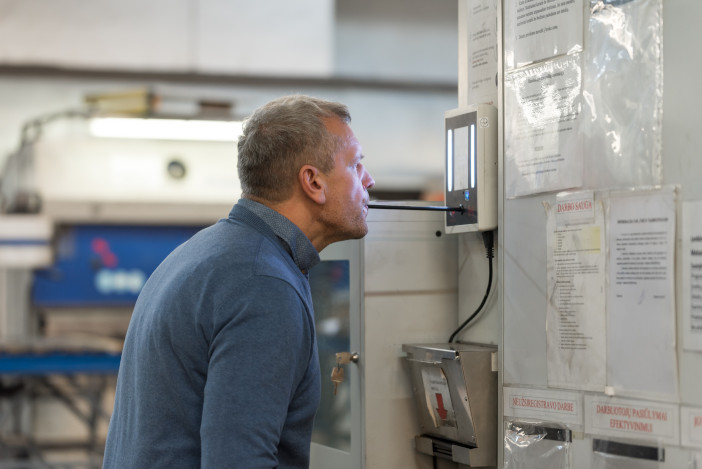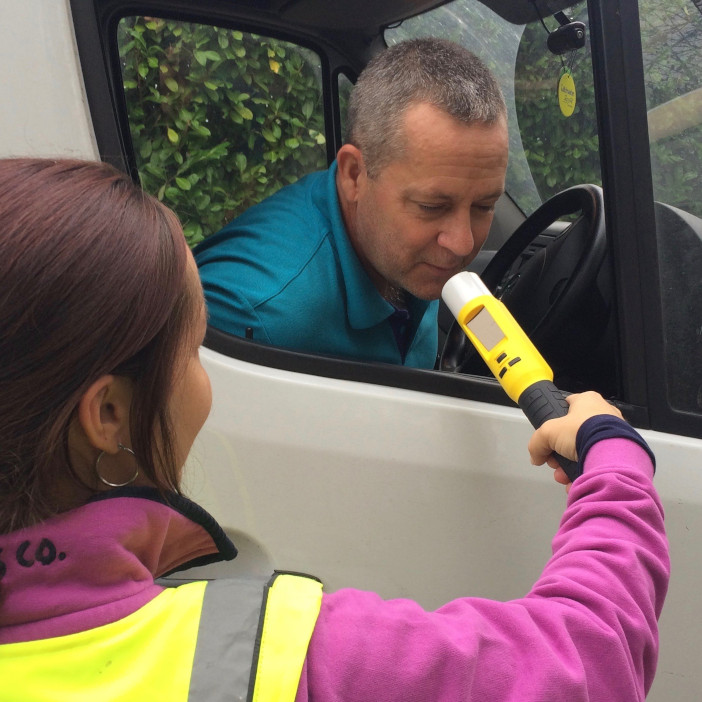Suzannah Robin, an alcohol and drug safety expert at AlcoDigital, discusses the problem of alcohol misuse during Covid-19 and explains how online training can promote staff safety in risky industries such as agriculture.
While Covid-19 restrictions have kept many away from pubs and clubs, the lockdown has left a legacy of harmful drinking at home. One study by the Organisation for Economic Co-operation and Development (OECD) found that 36% of people increased their alcohol consumption during the first lockdown in 2020.
Whether the result of an occasional binge or a chronic problem, alcohol abuse can wreak devastation on both work and home life. In a safety-critical industry such as agriculture, a drug and alcohol-free workforce could not be more important.
With the pandemic leading to increased addiction issues and associated mental ill-health, according to a YouGov survey, this is a problem that needs careful consideration for all employers within the farming sector.
The latest figures show that while agriculture employs just 1% of Britain’s working population, the industry accounts for nearly a quarter of all workplace fatal injuries. According to the Health and Safety Executive (HSE), it has the worst rate of fatal injuries of all the major industrial sectors – around 20 times higher than the average five-year annual rate across all industries.
Alcohol misuse and the economy – what are the facts?
Public Health England says the cost of alcohol misuse to the economy is £7bn annually in lost productivity through unemployment and sickness. The charity Alcohol Change UK reports that 40% of employers mention alcohol as a significant cause of low productivity.

A recent study in the US by the Mountain Plains Addiction Technology Transfer Center (Mountain Plains ATTC) and the Mountain Plains Mental Health Technology Transfer Center (Mountain Plains MHTTC) reported that growing numbers of farmers are experiencing substance abuse disorders and mental health concerns.
The many stresses of farming life include long hours, isolation, unpredictable weather, falling incomes and lack of access to relevant care – factors which are mirrored here in the UK.
To an individual farm or agricultural business, the exact impact of problem drinking can be difficult to monitor, as productivity can decrease slowly over time where a farmer or agricultural labourer is struggling with addiction. Minor accidents are not always recorded as alcohol-related, and for farms without an alcohol screening policy, any link can be very difficult to prove.
There’s no doubt that drinking alcohol impairs judgement, damages physical co-ordination and makes dangerous accidents far more likely. Yet the HSE does not release data on how many accidents at work involve alcohol.
The data we do have from HSE shows that in 2020/21, 41 people in England, Scotland and Wales were killed in agriculture including 34 farm workers and seven members of the public. In addition, two children were killed by farming.
In recent years, there have been a number of court cases involving farmers driving tractors on public roads while over the legal limit for alcohol. Whether driving on private land or public highways, it is absolutely imperative that farmers and their employees are free from the influence of drugs or alcohol while at the wheel of heavy vehicles and machinery.

Drugs and alcohol testing in the workplace – what is the law?
While the agriculture industry is not required by law to screen employees for drugs or alcohol, employers are legally required to ensure the safety of workers under their care.
Random or regular drugs and alcohol testing may take some getting used to when first introduced, but the benefits are quickly realised, sending a powerful ‘stay safe’ message to the workforce.
There is inevitably some time and financial investment involved in setting up a testing policy, but breathalysers and other testing devices have become increasingly cost-effective and user friendly over recent years. In the long-term, screening policies present an investment well worth making: if a serious accident occurs and an employer is found to have been negligent in any way, there is a clear risk of prosecution and hefty fines.
In addition to breathalysers, alcohol interlocks can be used on agricultural equipment or machinery, preventing them from starting until a negative breath test has been registered. Another form of interlock device, the Lifeloc Sentinel, requires no mouthpiece and can be fitted to unsupervised turnstiles, electric gates, and other barrier systems – preventing anyone impaired by alcohol from entering a safety-critical area.
Covid-safe training for employers
Setting up a testing programme is an important measure in supporting your workforce. But with so many screening methods available, it can be hard to know where to start, especially when Covid safety remains a primary concern. A good first step is to book an accredited training course that will offer all the knowledge and practical skills necessary to implement screening to suit the specific requirements of individual companies.
Online ‘live’ training such as that provided by AlcoDigital gives comprehensive guidance while also remaining completely Covid-safe. Based on AlcoDigital’s award-winning workplace training days, these hosted Zoom webinars were designed specifically in response to the first UK lockdown, and have run successfully ever since. Webinar training ensures companies can keep up-to-date with the latest industry recommendations and relevant legislation at a time when the need has never been greater.

Hands-on demonstrations of the latest innovative screening methods can be given online, for example, the fully automated Worksober device that uses facial recognition technology to prevent misidentification.
Face-to-face training has now resumed, but many companies continue to opt for the convenience of Zoom webinars, allowing staff members to join in the session from any location.
With professional and reliable training, a suitable testing policy can be implemented within a matter of weeks.
Every employee in the UK deserves protection and support from the dangers of alcohol or drug misuse. As we slowly emerge from the Covid-19 crisis, the question has to be not ‘if’ but ‘when’ to start screening your workforce.

